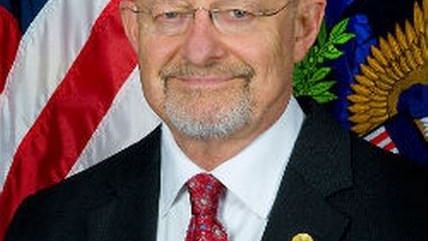How Disconcerted Should We Feel About an Intel Chief Who Doesn't Grasp Human Behavior?
Does Clapper really not know why Snowden leaked?


Eli Lake has a new piece up at the Daily Beast about Director of Intelligence James Clapper, and it absolutely, positively will not ease anybody's mind that Clapper has a mental grasp at all why people are upset at the scope of National Security Agency (NSA) data collection. The man still, after all this public outrage over the NSA's behavior, does not understand why Edward Snowden is leaking information:
And maybe the worst part for Clapper is, he still doesn't get why Snowden did it. Clapper sees himself as the man who's opened up the intelligence community to public scrutiny, who keeps the Constitution on his wall, and who's endured the endless congressional grillings—all while keeping Americans safe. How could Snowden, a fellow intelligence analyst and contractor, not see that? "Maybe if I had I'd understand him better because I have trouble understanding what he did or what he'd do," the director said. "From my standpoint, the damage he's done. I could almost accept it or understand it if this were simply about his concerns about so-called domestic surveillance programs. But what he did, what he took, what he has exposed, goes way, way, way beyond the so-called domestic surveillance programs."
At The Atlantic, Conor Friedersdorf looks at that paragraph, along with Clapper's acknowledgment that he can't guarantee there won't be future leaks, and asks the important question: Why should we trust the NSA with our information, then?
The NSA has collected information about the communications of millions of Americans. Nefarious actors, given access to metadata from the phone dragnet alone, could blackmail countless citizens and quietly manipulate the political process. The NSA doesn't deny that. They just insist that they're not nefarious actors, that safeguards are in place, and that we should trust them as stewards of this data.
Well, here is Clapper telling the truth: Despite regarding Chelsea Manning and Edward Snowden as having done grave damage to the United States with their data thefts, he can't guarantee the same thing won't happen again. And if a future whistleblower could gain access to the most sensitive data, so could a blackmailer.
So could a foreign spy.
Though discussion of potential damage of data theft from the NSA tends to drift over into blacks ops, it doesn't have to be so sexy to be something we need to concern ourselves about. In fact, I think that argument we need to fear of information falling into the hands of enemy spies or political opportunists tends to feed the government's line of defense. When the NSA or President Barack Obama condescendingly declares they aren't listening to our calls or reading our e-mails, what they mean is that we don't have any information they'd find interesting anyway and we're all just being paranoid. Yes, there are plenty of examples of federal surveillance tools being used against Americans for political purposes, but it is probably true that most Americans will never be subject to such abuses.
However, the more likely fear should not be a foreign spy or a political opportunist, but for things like identity theft or more conventional, less-cloak-and-dagger-oriented crimes. We've seen police officers abuse databases to get access to information to file false tax returns. The more information about us more people have access to, especially without our knowledge or control, the more risks we face of any number of abuses.
Friedersdorf also notes that Snowden's position about NSA surveillance is obviously not an outlier, making Clapper's bafflement at Snowden rather baffling itself:
It isn't as if no one else has felt this alarm. Snowden's revelations alarmed masses in multiple countries, including heads of state, legislators in both American political parties, professionals at some of the world's leading IT companies. Clapper can't even imagine what might've inspired Snowden? The answer is everywhere. Maybe he should get outside the SIGINT bubble.
Nick Gillespie analyzed Lake's last piece on Clapper, where he seems to think (probably incorrectly) that Americans would have been fine with mass domestic surveillance collection had they been told, here.


Show Comments (11)